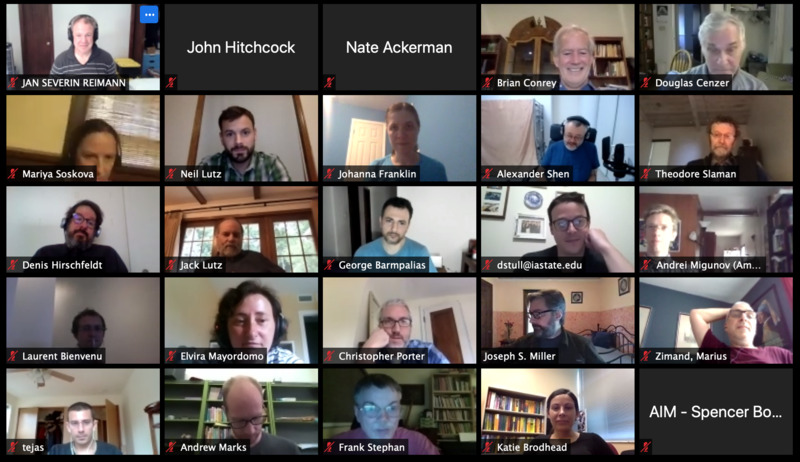
at the
American Institute of Mathematics, San Jose, California
organized by
Denis R. Hirschfeldt, Joseph S. Miller, and Theodore A. Slaman
The goal of this workshop is to bring together researchers with expertise in computability, set theory, geometric measure theory, and related areas to further develop these new approaches. The following topics seem particularly promising:
Besicovitch showed that the continuum hypothesis implies that there exist sets with a ``strong'' dimension property: that is they have non-$\sigma$-finite linear measure and have $\mathcal{H}^\psi$-measure zero for any gauge function $\psi$ higher than linear. Such sets are necessarily non-analytic but can be co-analytic if $V=L$. More generally, the failure of the Borel Conjecture for sets of strong measure zero implies that there are non-$\sigma$-finite sets of strong linear dimension. Does the assumption of $AD^{L[\mathbb{R}]}$ imply that there are no such sets in $L[\mathbb{R}]$? Is their existence equivalent to the failure of the Borel conjecture?
There is a tight correspondence between the classical Hausdorff dimension of a set in Euclidean space and the effective Hausdorff dimension of its points. Questions about the Hausdorff dimension of a set can then be translated into questions about the relative randomness and effective dimension of single points. To what extent does this principle extend to general gauge functions and to metric spaces other than Euclidean?
The point-to-set principle for Hausdorff dimension can be seen as an instance of a local-global correspondence for Hausdorff dimension of measures. For the Fourier dimension of a measure (defined based on the asymptotic behavior of the Fourier-Stieltjes coefficients of a measure - a global property) such a correspondence is currently not known.
The workshop schedule.
A report on the workshop activities.
A list of open problems.
Papers arising from the workshop: